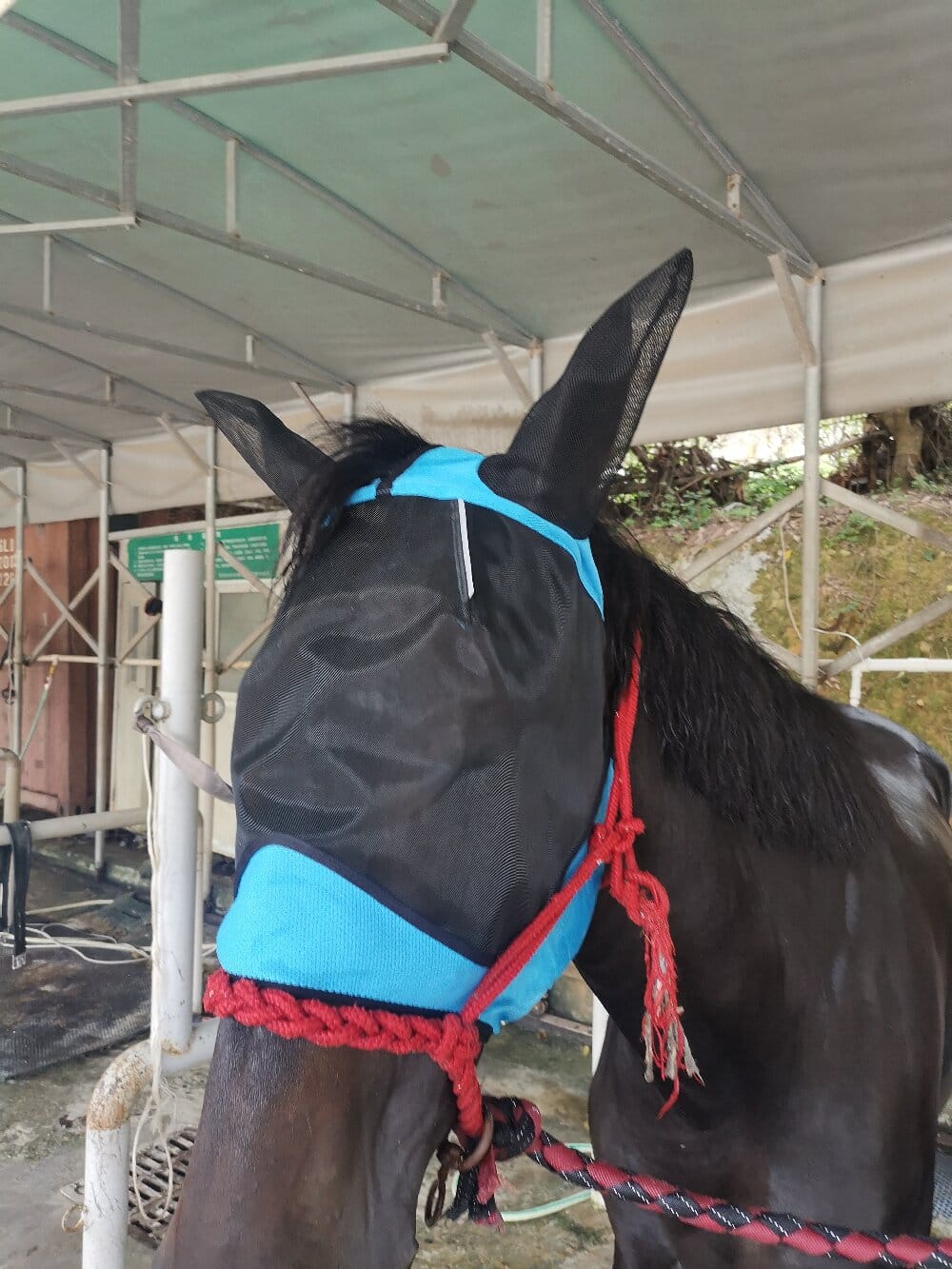If you own horses, you’ve likely encountered the nuisance of flies buzzing around their faces. A horse fly mask is an essential piece of equine gear designed to protect your horse from irritating insects, UV rays, and even dust. But how do you choose the right one, and what problems does it solve? Let me walk you through everything you need to know.
Flies and other pests aren’t just annoying—they can cause serious health issues for your horse. Constant biting leads to stress, skin infections, and even eye problems like conjunctivitis. A well-fitted fly mask acts as a barrier, keeping insects away while allowing your horse to see and breathe comfortably. Additionally, some masks offer UV protection, which is crucial for horses with light-sensitive eyes or pink skin around their face.
Common Problems Solved by a Horse Fly Mask
Here’s how a fly mask for horses addresses common challenges:
- Insect irritation: Reduces bites from flies, mosquitoes, and gnats.
- Eye protection: Shields against dust, wind, and harmful UV rays.
- Prevents rubbing: Stops horses from scratching their faces on fences or trees.
- All-day comfort: Lightweight, breathable materials keep your horse cool.
Choosing the Right Fly Mask for Your Horse
Not all fly masks are created equal. Here’s what to consider when selecting one:
- Fit: Measure your horse’s head to ensure proper coverage without restricting movement.
- Material: Look for breathable, durable fabrics like mesh with UV protection.
- Design: Some masks cover just the eyes, while others extend to the ears and muzzle.
- Ease of cleaning: Machine-washable options save time and maintain hygiene.
How to Properly Use and Maintain a Fly Mask
Even the best horse fly mask won’t work if it’s not used correctly. Follow these tips:
- Check the fit daily to avoid rubbing or slipping.
- Remove the mask periodically to inspect for irritation or debris.
- Clean it regularly to prevent bacterial buildup.
- Store it in a dry place when not in use to prolong its lifespan.
Alternatives to Traditional Fly Masks
If your horse resists wearing a mask, consider these alternatives:
- Fly repellent sprays: Temporary relief but require frequent reapplication.
- Fly sheets: Full-body protection but don’t cover the face.
- Natural remedies: Certain herbs and oils can deter insects, though results vary.
Final Thoughts on Horse Fly Masks
A fly mask is a simple yet effective solution to keep your horse comfortable and healthy during fly season. By choosing the right design, maintaining it properly, and addressing any fit issues, you’ll minimize stress for both you and your equine companion. Whether you opt for a basic model or a high-tech version with extra features, investing in quality protection will pay off in the long run.

